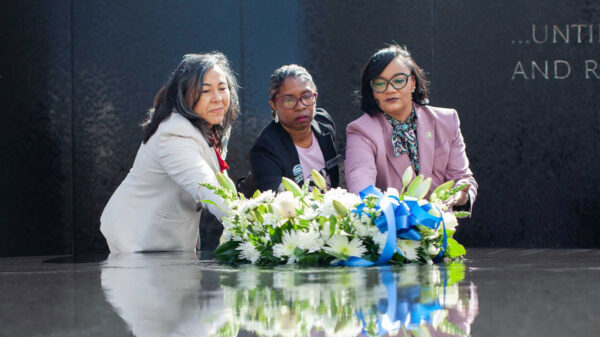By Brandon Moseley
Alabama Political Reporter
On Tuesday, Congresswoman Terri A. Sewell (D) from Selma celebrated the 50th anniversary of Dr. Martin Luther King Jr.’s “Letter from Birmingham Jail” by reading an excerpt of the Letter on the floor of the House of Representatives.
Rep. Sewell wrote in a written statement, “Today we pay special tribute to Dr. Martin Luther King Jr. in acknowledging the 50th Anniversary of the ‘Letter from Birmingham Jail’,” said Rep. Sewell. “It was my humble honor to join with the Birmingham Public Library and so many voices around the world in reading an excerpt from Dr. King’s Letter on the floor of the House of Representatives. The Letter is a powerful reminder of how far this nation has come to live up to its ideas of equality and justice all. We must continue to fight injustice and discrimination anywhere and everywhere it exists and work to ensure equality for all Americans.”
Alabama was a very different place in 1963. Blacks were largely disenfranchised from state and local government by state laws that established a system of poll taxes and literacy tests. The state’s “Jim Crow” laws of the time severely restricted the freedoms and personal liberties of Black citizens. While Blacks and Whites often lived in close proximity in the South; the two races went to separate schools, used separate restroom facilities, separate water fountains, separate sections in movie theatres, separate hospital wings, etc. This system was enforced by Birmingham’s all white police department and Birmingham’s all white city commission. When the White authorities were deemed “too soft” White supremacists, including the powerful Klu Klux Klan would take matters into their own hands with public demonstrations, street violence, bombings, and sometimes lynchings (more common before World War II). Blacks who wanted to demonstrate for equality naturally could not get a permit to peacefully assemble. Since they would not be give a permit to legally march, the Birmingham Police would break up any protests as being “unlawful”.
On April 12, 1963, Dr. Martin Luther King Jr. was arrested and placed in solitary confinement at the Birmingham Jail for participating in nonviolent demonstrations against segregation. While in jail, Dr. King read an article in the Birmingham News entitled “White Clergymen Urge Local Negroes to Withdraw from Demonstrations.”
The eight white clergymen were critical of those, like Dr. King, who were leading protests in segregated Birmingham and called the demonstrations “unwise and untimely.” Their criticisms inspired Dr. King to pen a letter that was published upon his release on April 16, 1963 denouncing segregation and countering the argument that this is not a good time for Civil Rights protests. King argued that the “gradualism” the Birmingham clerics were proposing would only lead to the perpetuation of segregation.
King was honored with a Nobel Peace Prize for his work for civil rights. Ultimately he was assassinated in Memphis by a White supremacist.
The anniversary was honored on Tuesday in Birmingham by Mayor William Bell and Governor Robert Bentley (R) who hosted Dr. King’s daughter, the Rev. Bernice King at a memorial in Birmingham.





















































